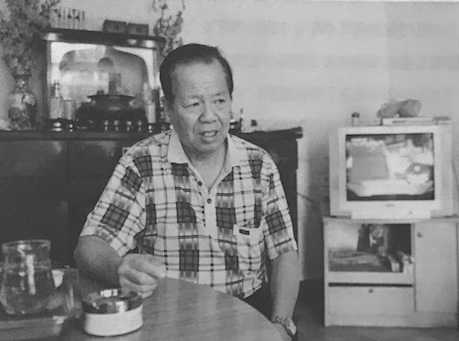Principal Investigator
Masuda Hajimu (JP/SG)
Masuda Hajimu (family name Masuda) is a historian at the National University of Singapore. He has recently published an edited volume, Cold War Asia. Unlearning Narratives, Making New Histories (The University of North Carolina Press, 2025), and is the author of Cold War Crucible: The Korean Conflict and the Postwar World (Harvard University Press, 2015); “The Social Experience of War and Occupation” in The New Cambridge History of Japan Vol. III (Cambridge University Press, 2023), “The Early Cold War: Studies of Cold War America in the 21st Century” in A Companion to U.S. Foreign Relations (Wiley Blackwell, 2020); among many others. His areas of concentration are the modern history of Japan and East Asia, the history of American foreign relations, and the social and global history of the Cold War, with particular attention toward ordinary people and their violence, as well as the recurrent rise of grassroots social conservatism in the globalized world of the twentieth century. He was a residential fellow at the Woodrow Wilson International Center for Scholars (2017-18); Visiting Fellow at the University of Cambridge (2020); and Visiting Scholar at Waseda University (2020). In 2021, he received the 75th Mainichi Shuppan Bunka Sho (The Mainichi Publishing Culture Prize) and the 21st Osaragi Jiro Rondan Prize.
Postdoctoral Fellows
Kisho Tsuchiya
Chien Wen Kung
Muhammed Kunhi Mahin Udma
Research Assistant
Arivarun Anbualagan (SG)
Developer & Designer
Syahrul Anuar (SG)
Student Researchers
Megumi Hagiwara (PhD, Taiwan)
Socheat Nhean (PhD, Cambodia)
Pa Kuan Huai (MA, Malaysia)
Jeremy Tan (Undergrad, Singapore)
Overseas Researchers
Alvin Bui
Chen Yishen (China)
Chen Yiwen (Taiwan)
Cheng Yimeng (China)
Chen Yongming (China)
Chong Ujong (Japan/Korea)
Stephen Christopher (Japan/Nepal)
Rina Hong (Japan/Korea)
Phianphachong Intarat (Thailand)
Khairunnisa (Indonesia)
Anna Koshcheeva (Laos)
Dominique Lucagbo (Philippines)
Christian Lemuel Magaling (Philippines)
Robert Moisa (Indonesia)
Imam Muhtarom (Indonesia)
Ngatini (Vietnam)
Juliette Sendra (Indonesia)
Veronica Sison (Philippines)
Soeung Bunly (Cambodia)
Soun Ponleu (Cambodia)
Appridzani Syahfrullah (Indonesia)
Siti Zaainatul Umaroh (Indonesia)
Satriono Priyo Utomo (Indonesia)
Workshop Participants
Chen Yongming
Cheng Yi-meng
Jason Ng Sze Chieh
Mary Grace R. Conception
Simon Richard Creak
Cui Feng
David E. Gilbert
Vannessa Hearman
Paula Hendrikx
Phianphachong Intarat
Sujane Kanparit
Kao Dan-hua
Hema Kiruppalini
Prasit Leepreecha
Luong Thi Hong
Masuda Hajimu
Covell Meyskens
Robert Moisa
Muhammed Kunhi
Imam Muhtarom
Sherzod Muminov
May Ngo
Nguyen Diu-Huong
Uyen Nguyen
Ricky C. Ornopia
Mythri P U
Pa Kuan Huai
Vatthana Pholsena
Morragotwong Phumplab
Elgin Glenn Salomon
Juliette Sendra
Sim Chi Yin
Savina Sirik
Veronica Sison
Appridzani Syahfrullah
Tan Teng Phee
Kisho Tsuchiya
Siti Zainatul Umarah
Mathew Woolgar
Kinuko Maehara Yamazato
Bin Yang
Beiyu Zhang
